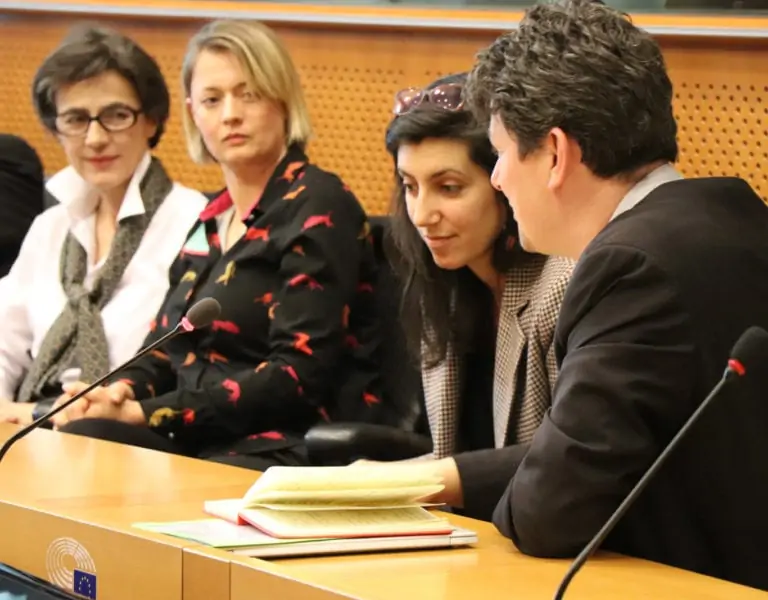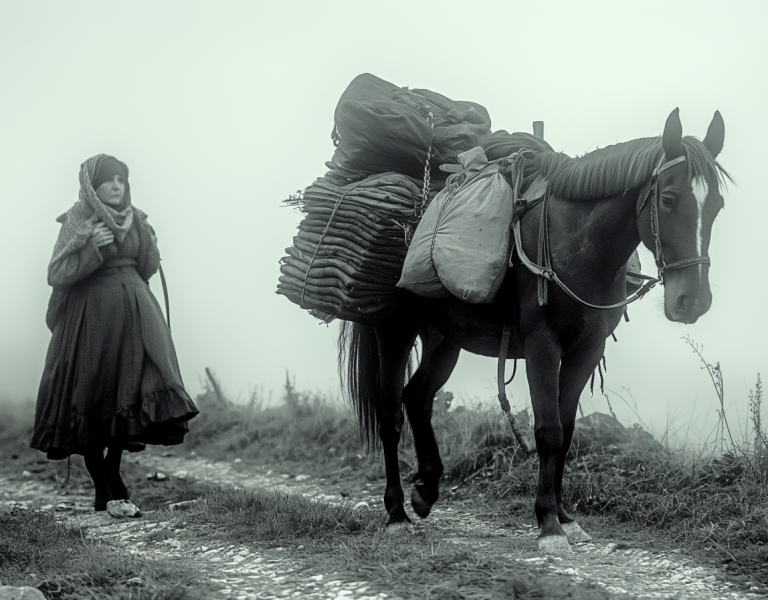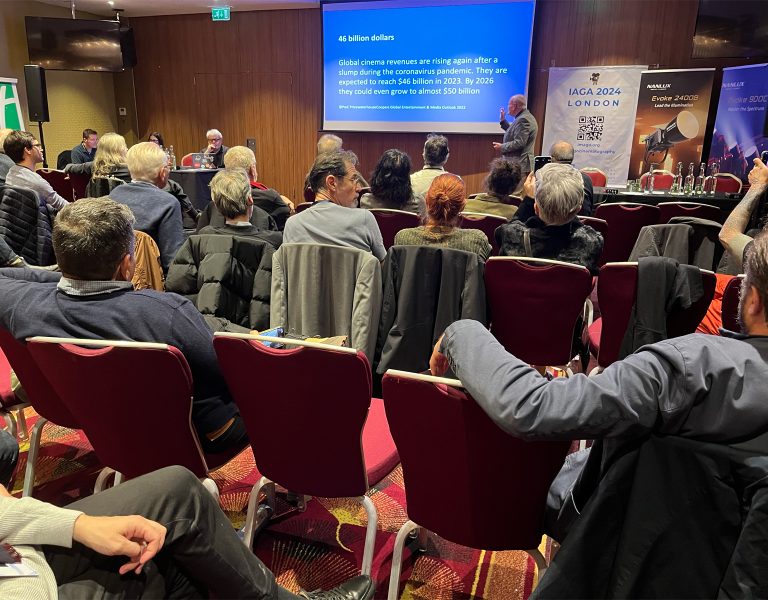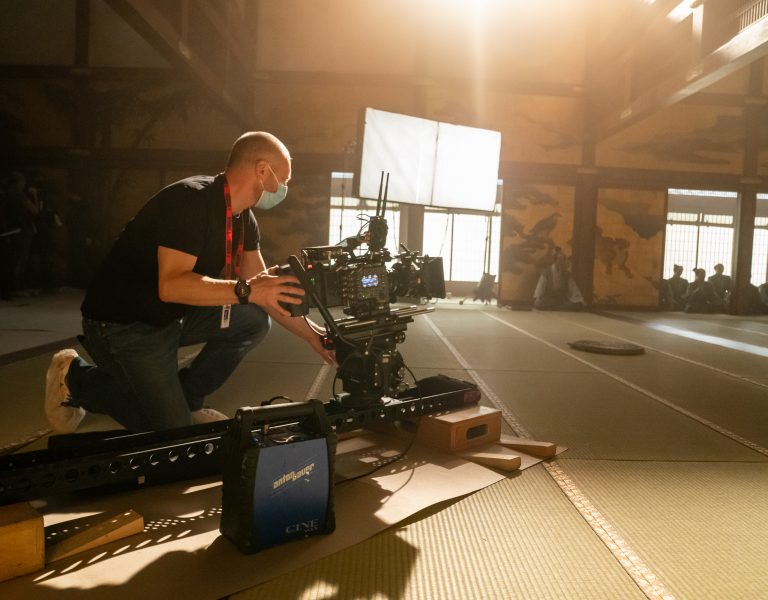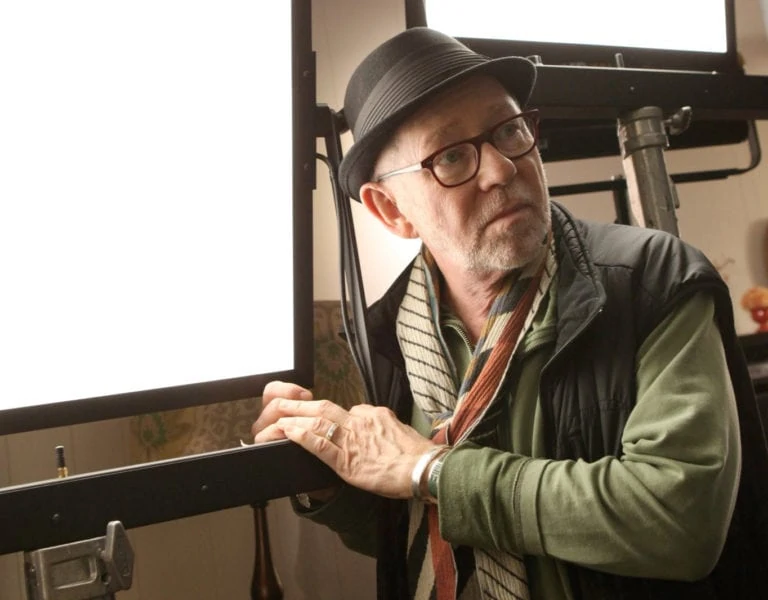Equal opportunities for all
The IMAGO D&I Committee shines a light on important initiatives from India and Hungary which aim to break barriers and offer talented female cinematographers guidance and support to take their careers to the next level.
IMAGO’s D&I Committee has been a trailblazer in fostering representation and equity in cinematography. While discussions about diversity and inclusion gained momentum in 2016, when the committee was established, we find ourselves in 2025 still waiting for meaningful change. One major challenge is the constant discouragement minorities face, as progress feels slow and tokenism remains a common issue.
Our overareching goal is simple yet profound: equal opportunities for everyone.
Last year, women cinematographers reached a historic milestone by forming the super-collective Women in Cinematography, uniting global efforts to address systemic barriers. This initiative and its ongoing work is a testament to the power of collective action and accord within the filmmaking community and we are honoured that the IMAGO D&I Committee is among the founders.
Our membership spans the whole globe and we have learned that each country and each culture have its minorities. In this issue we present two initiatives from members of the IMAGO societies from India and Hungary.
INDIA:
Flare Cinematography Film Festival: Celebrating Women Cinematographers and Fostering Mentorship
The Flare Cinematography Film Festival is dedicated to showcasing the diverse and impactful work of women cinematographers from India and around the world. Its mission is to provide a platform for these professionals to present their work, foster meaningful dialogue, and encourage collaboration within the cinematography community. By promoting the exchange of ideas, the festival aims to enhance visibility and understanding of women’s contributions to the craft.
Founded by Pooja Gupte ISC IWCC, an experienced cinematographer with over 15 years in the industry, the festival offers women cinematographers the opportunity to gain recognition, connect with peers, and share their work. Abhra Das, with over 10 years of experience in the film festival space, serves as director of programmes, overseeing the curation.
In addition to celebrating the achievements of women, the festival focuses on creating opportunities for emerging and mid-career cinematographers. Through masterclasses and other events, it fosters mentorship, offering valuable insights into both the art and business of cinematography. The festival’s first event, a masterclass by legendary cinematographer Kiran Deohans ISC, took place on 15-17 January 2025. Known for his work on films like Aks, Jodha Akbar, and Kabhi Khushi Kabhi Gham, Deohans provided participants with direct insights and guidance.
On 29 January 2025, the festival hosted a successful panel discussion in collaboration with the Kala Ghoda Arts Festival, attracting around 200 attendees. The panel featured cinematographers Kiran Deohans ISC, Fowzia Fathima IWCC ISC, Deepti Gupta IWCC ISC, Siddharth Diwan ISC and Neha Parti Matiyani IWCC ISC, in conversation with Priyanka Singh IWCC. Pooja Gupte IWCC ISC, festival director, introduced the session.
Scheduled for the latter half of 2025, the main festival is currently seeking funding and sponsorship. The smaller events leading up to it, such as masterclasses and panel discussions, are laying the groundwork for the larger festival. These initiatives aim to provide opportunities for cinematographers at all stages of their careers, with the goal of making a lasting impact on the industry.
HUNGARY:
Following the events leading up to last year’s Camerimage Festival, the Hungarian Cinematographers Association (HCA) recognised the urgent need for concrete action rather than discussion only. The underrepresentation of women in cinematography, both in Hungary and internationally, highlighted the necessity of proactive steps toward greater inclusivity. In response, the HCA launched the HCA Mentorship Program, an initiative exclusively for women cinematographers, designed and developed by female members of the association (Eszter Csepeli HCA, Evelin Judit Tóth HCA, Eszter Galambos HCA, Flóra Fecske HCA)
This groundbreaking program provides mentees with hands-on guidance through real productions, ensuring they gain invaluable professional experience in a practical setting. Unlike conventional training, which often remains theoretical, this initiative allows emerging women cinematographers to work alongside experienced professionals, observing and participating in real industry workflows. A crucial element of the program is the involvement of well-established HCA members as mentors. These accomplished cinematographers, with years of industry experience offer personalised guidance, sharing their expertise and insights to help mentees develop their artistic and technical skills.
The mentorship program is open to women cinematographers who have at least five years of experience and are 25 years or older. By setting these criteria, the HCA ensures that participants already possess foundational knowledge and skills but are at a stage in their careers where mentorship can significantly impact their professional growth. The application process is designed to assess both technical ability and creative vision. Applicants must submit a showreel showcasing their best work, a five-minute scene that demonstrates their cinematographic style, and a personal introduction outlining their aspirations and motivations. The HCA’s female cinematographers carefully evaluate these applications, selecting mentees based on talent, potential, and commitment to the craft. At the time of writing, the HCA has received 80 applications for the program.
Through this initiative, the HCA aims not only to provide direct professional development but also to foster a supportive network among women cinematographers. By creating structured mentorship opportunities, the program encourages knowledge-sharing, collaboration, and a sense of community within the industry. The long-term goal is to contribute to a more balanced and diverse cinematography landscape, where women have equal opportunities to excel and lead.
This effort reinforces the HCA’s deep commitment to actively shaping a more inclusive and supportive industry for future generations. It is not just about individual career advancement but about transforming the broader professional environment. By investing in mentorship, the HCA is taking meaningful steps to break barriers, challenge existing norms, and ensure that talented women cinematographers have the guidance and support necessary to thrive in their careers.

